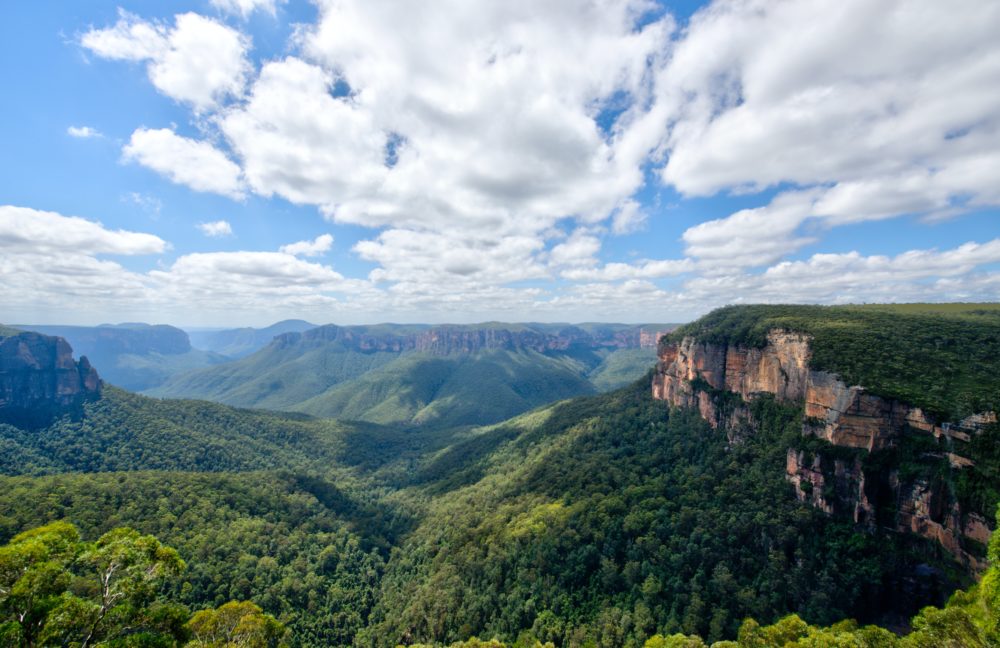EDO welcomes the Final Report into the Destruction of Indigenous Heritage Sites at Juukan Gorge (the Report).
The Report is a landmark publication for two reasons: it provides an important, shocking and distressing, account of the breadth and depth of cultural heritage destruction across Australia; and, in response, it contains a strong call to action to modernise heritage laws in all jurisdictions in line with relevant international law.
The Report is a powerful reminder of the severe distress that has been caused to, and continues to impact, the Puutu Kunti Kurrama and Pinikura (PKKP) peoples from the destruction of their cultural heritage. We continue to offer our deepest sympathies for their loss. The Report also clearly demonstrates that the experience of the PKKP peoples was not isolated, and that there has been ‘widespread destruction of tangible and intangible cultural heritage’ across Australia. There are so many stories in this report of the sadness, pain and loss caused by cultural heritage destruction.
Several of the examples in the Report relate to EDO clients such as:
- Dolly Talbot as a member of the Gomeroi Traditional Custodians who fought for protection of their heritage on the Liverpool Plains, northwest NSW;
- the Tasmanian Aboriginal Centre with respect to protection of cultural heritage in the Takayna/Tarkine by seeking to prevent re-opening of 4WD tracks;
- a group of Aboriginal women seeking protection of the ancient Butterfly Cave site (a sacred women’s site for the local Awabakal people) at Lake Macquarie, NSW;
- Traditional Owners, Jack Green & Josephine Davey Green, seeking protection of cultural heritage in the area of the McArthur River mine; and
- Traditional Owners in the Martuwarra-Fitzroy River seeking cultural heritage protection of their river.
EDO made a submission to this inquiry and was also represented at the inquiry by Dr Lauren Butterly (Special Counsel, Cultural Heritage), Fleur Ramsay (Special Counsel, International Program) and Revel Pointon (Managing Lawyer, Central and Southern Queensland). EDO’s submission included comprehensive critical analysis of both Commonwealth and State/Territory legislation, and also recommendations for reform, including adopting the standard of Free, Prior and Informed Consent and consistency with the United Nations Declaration on the Rights of Indigenous Peoples (UNDRIP).
The Report emphatically stated that the ‘States have failed’ in relation to their cultural heritage protection laws. Further, the Report noted that the severe limitations of the Commonwealth’s standalone heritage legislation, the Aboriginal and Torres Strait Islander Heritage Protection Act 1984 (Cth), were also apparent. As was represented in our submissions to the Inquiry, EDO strongly agrees with both these sentiments. In response, the Report makes recommendations that:
- the Commonwealth Government legislate a new framework for cultural heritage protection at the national level;
- that this legislation should be developed through a co-design process with Aboriginal and Torres Strait Islander peoples; and
- that this new legislation should ‘set out the minimum standards for State and Territory heritage protections consistent with relevant international law (including the UNDRIP and the Dhawura Ngilan: A Vision for Aboriginal and Torres Strait Islander Heritage in Australia’).
This confronting report warrants detailed consideration by the Commonwealth Government and a clear commitment to begin a co-design reform process with Aboriginal and Torres Strait Islander peoples.
It is clear that reform must occur at both the national and State and Territory levels. We note that in Western Australia, reform is on foot. EDO has raised concerns about some of the deficiencies of the draft bill in Western Australia and has also assisted a group of Western Australian Aboriginal people to make a formal request for a United Nations Committee to review Western Australia’s draft proposed cultural heritage bill, arguing the draft bill is incompatible with Australia’s international obligations on racial discrimination. The Inquiry Report ‘encourages the WA Government to review the ACH Bill and make amendments to address these concerns.’ This must involve consideration of the discussion of standards (relating to Recommendation 3) including ‘an ability for traditional owners to withhold consent to the destruction of cultural heritage’ and ‘mechanisms for traditional owners to seek review or appeal of decisions’.
More broadly, EDO continues to offer our absolute commitment to support Aboriginal and Torres Strait Islander people to protect, and make decisions about, their country. We are at a critical juncture, and we need to get this crucial reform right across the country.
As noted by, EDO Board Member, Joe Morrison, and EDO CEO, David Morris: ‘Apologies cannot replace what is lost. We advocate for a better way to honour the things lost by reforming our national psyche, our laws and our values.’ Never again.
Latest Healthy Communities Udates

Passage of landmark healthy environment bill sets standard for Australia and abroad
Community braces for more impacts as court upholds massive Mt Pleasant coal mine expansion
EPA’s effectiveness questioned after disappointing Maules Creek pollution ruling
Join the EDO network today to help give the environment the defence it deserves.
Take Action




